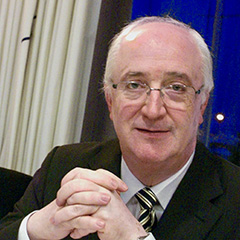 Professor Emeritus, University of Alicante (Spain) – Ph.D. in Mathematics, University of Valencia (Spain)
Professor Emeritus, University of Alicante (Spain) – Ph.D. in Mathematics, University of Valencia (Spain)
Born in Alcoy (Alicante), on August 1, 1949.
Appointed as Corresponding Member of the Royal Academy of Exact, Physical and Natural Sciences of Spain on December 18, 2013.
Bachelor’s degree in Mathematics (1971). PhD in Mathematics, University of Valencia (1973). Associate Professor of University (1978-81). Professor of Statistics and Operations Research at the University of Alicante (since 1981). Honorary Research Fellow at the Centre for Informatics and Applied Optimization (CIAO), University of Ballarat, Australia; since January 2013, Honorary Adjunct Professor at the University of Ballarat. Research stays in Cambridge (England), Trier (Germany), Mendoza (Argentina), Santiago de Chile (Chile), Barcelona (UAB), Enschede (The Netherlands), Taiwan (Cheng Kung University, Tainan), PolyU of Hong-Kong, Politecnico di Milano, Ballarat (Australia), etc. His research interests are mathematical foundations of optimization (finite and infinite dimensional), semi-infinite programming, convex and variational analysis, and game theory.
Coordinating Researcher of the Consolider i-MATH project (from July 2008 until the conclusion of the project in April 2012), and principal investigator in about twenty research projects (Generalitat Valenciana, DGES, DGICYT, etc.). Chair of EUROPT, Continuous Optimization Working Group of EURO in the period 2008-2010. Organizer of numerous scientific events.
President of the Spanish Society of Statistics and Operations Research (SEIO) from 1988 to 1990 and Vice President on two occasions (in 1985 and 1998), being its representative in international societies EMS, IFORS, EURO, etc. Member of the Spanish Chapter of the International Committee for Mathematical Instruction (ICMI, 1999-2001). Member of the Valencian Commission for the Accreditation and Evaluation of the Quality of the Valencian University System (CVAEC, 2002-04). Expert of the National Mathematics Program and member of the Writing Commission of the SISE Report (2006, 2007). Advisor to the IMUS (Institute of Mathematics of the University of Seville). Director of seventeen doctoral theses.
(Co)editor of the journal TOP (2000-2007), published by Springer and promoted by the SEIO. Editor of Trabajos de Investigación Operativa (SEIO-CSIC, 1985-87) and associate editor of several international journals. According to the MathSciNet database he has published 113 research articles, and has been cited 647 times by 202 authors. According to Web of Science, 86 articles in JCR journals, 683 citations, of which 445 are not self-citations, h-index h=15, 140 citations in 2012. According to Google Scholar, the number of citations is 1856, and index h=23. According to Zentralblatt, 101 entries. He is co-author, together with M.A. Goberna, of the monographs Linear Semi-Infinite Optimization (John Wiley and Sons, 1998), with 162 citations in MathSciNet, and Post-Optimal Analysis in Linear Semi-Infinite Optimization (Springer’s Brief, 2014); “guest co-editor” of the book Semi-Infinite Programming. Recent Advances (Nonconvex Optimization and Its Applications 57, Kluwer Academic Publishers, Dordrecht, 2001); and author of the monograph The Role of Stochastic Processes in Biology (Arbor, 1995).
Honorary doctorate from the University of Limoges (2012).
Source: Real Academia de Ciencias Exactas, Físicas y Naturales
Google Scholar ResearchGateHonorary Degrees
- Doctor Honoris Causa, University of Limoges, France (2012)
Fellowships and Academy Memberships
- Corresponding Member, Royal Academy of Exact, Physical and Natural Sciences of Spain (2013)
Honorary Professorships
- Honorary Research Fellow, Centre for Informatics and Applied Optimization (CIAO), University of Ballarat, Australia
- Honorary Adjunct Professor, University of Ballarat, Australia (since 2013)
Specialization / Areas of Research
Mathematical foundations of optimization (finite and infinite dimensional), semi-infinite programming, convex and variational analysis, and game theory.